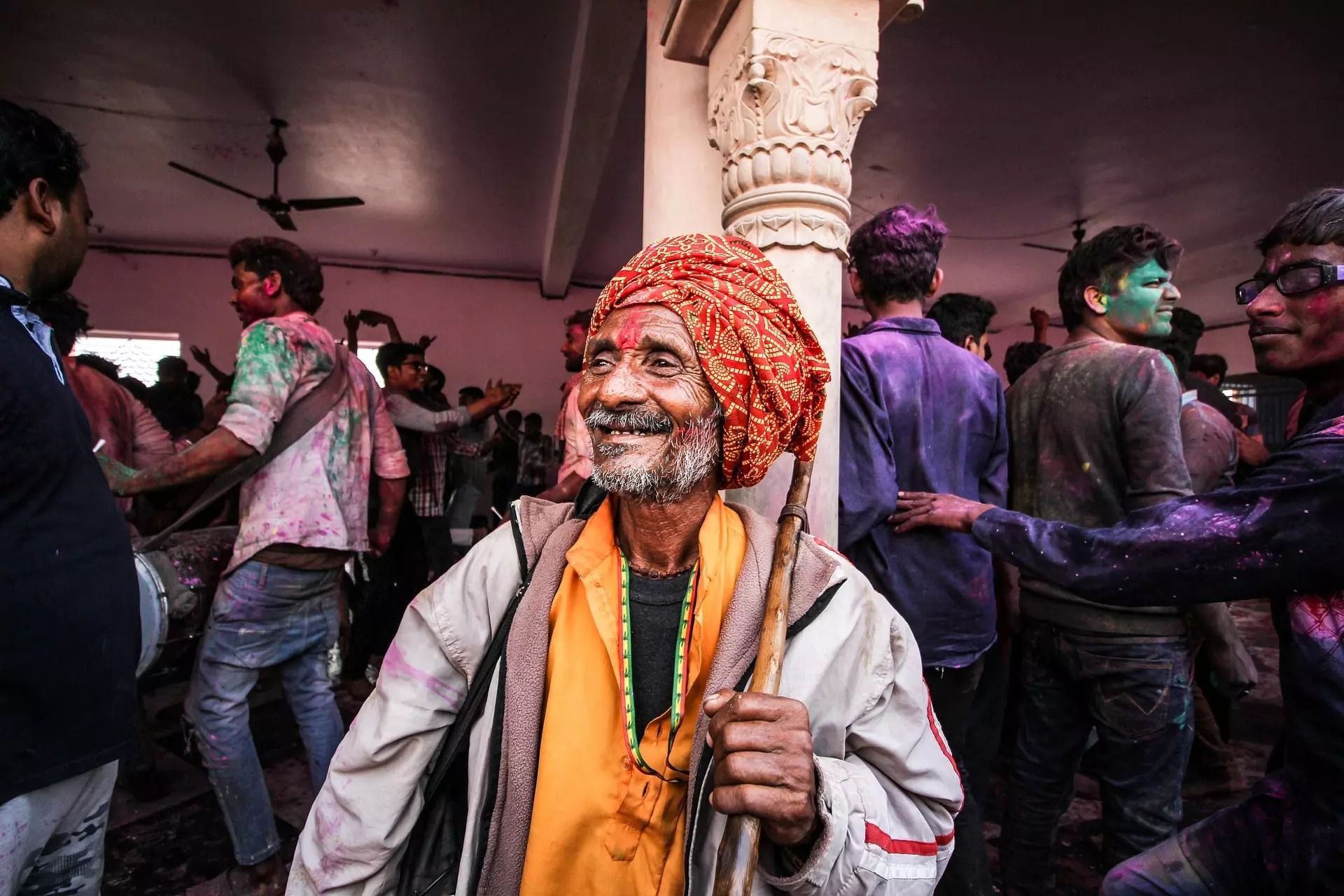Robert Bosnak
Spooky Dreams Café - A Special India Edition

India is grieving.
Today India suffers in agony. Over thousands of years the people of the Indian Subcontinent have been the greatest of dreamers who told stories from the deep imagination and where gods can be found at every street corner. Dreaming never stops: it is as vivid now as it was when the million gods were young and later-on when the Buddha walked the earth. Dreaming never stops; we can step into the same river again as a community and be healed by the waters of soul made by tears from the suffering world.
Why bother with the dreams of the night when our day is a nightmare? Stricken with grief we feel not only loss and sadness, but also rage. When risk increases so does outrage. This is a disorienting mixture of emotions. We drown as the ground quakes under us and solid ground becomes quicksand. Spontaneously we enter the world of metaphor, by day and by night.
Worldwide people have reported vivid, weird, and scary dreams—and unlike the dreams during ‘normal’ circumstances, they are not forgetting them. These dreams are a combination of fear, loss and rage—three elements making up dreams that can push them past ordinary oblivion, closer to the surface, closer to waking consciousness and closer to re-membering, inviting us to re-attach to them. In our dense confusion we long for meaning to arise from chaos; this guides us towards engaging with dreaming.
The original Spooky Dreams Café began in March of 2020 when New York City was being hit by Covid in the most atrocious manner. Bosnak had been asked in late January 2020 by his Chinese students to work on dreams with first responders to the Wuhan crisis. 4,000 health professionals showed up online. There clearly was a need to deal with the daytime nightmare by way of nightly dreaming. So dreams could support a community.
The original Spooky went every Friday/Saturday (since it was presented to the global community it stretched over all time zones with participants from nearly all of them,) without any interruption from March 2020 through May 2021, when the pandemic began to subside in the United States due to increasing vaccination.
Many people showed up who never presented a dream. They just wanted to be in the presence of dreaming to feel the harsh poetry of dying, loss and suffering and make sense of their own harrowing experiences. When a dream is worked in depth we reach a core that is collectively human. Everyone can relate to the images presented while at the same time the dream remains breathtakingly intimate.
Jung called this ‘archetypal.’ In this way a community started to tell each other their stories to the benefit of the presenters, the listeners and the community as a whole. The dreams never let us down and provided a much needed vitality during these days of Hell. We began to trust their resilience. A pandemic is a drain on the soul. We wake up into nightmares every day; it syphons off our life force into a sinkhole. This should not be faced as solitaires in isolation. We were grateful for the existence of the internet (and of the Jungplatform) so that we could remain in the community. Because communion heals.
Bosnak says that these free offerings of the Café from bartender Bosnak, doorman Machiel Klerk, door-woman Gauri Ramesh and the patrons who generously bared their souls, felt like unspeakable privilege, making beauty from tears without losing track of the horror raging outside. Sign up for free here.
Enjoy Jungian analyst Robert Bosnak being the bartender inviting folks to speak up, handing out napkins to dry an eye or a blanket to those shivering with dread.
The Café will be open for as long as we’re hunkered down. We’ll have people come in from all over the world telling tales of dreaming, dread and ghosts. Sign up for free.
Share
Other blog posts

Jung Platform is an online education space that offers a range of depth psychological and spiritual perspectives. Our courses and talks explore the journey of life with guidance from highly regarded teachers.
We are passionate about offering practical, life-enhancing tools and opportunities to connect with others on this path. Our aim is to help people connect to their own soul, so they can live more fully and colorfully.
Stay inspired.Get our magical updates.
Thank you for signing up!
FEATURED LINKS
-
Headquarters in Salt Lake City, Utah
-
info@jungplatform.com
-
Copyright © 2026
